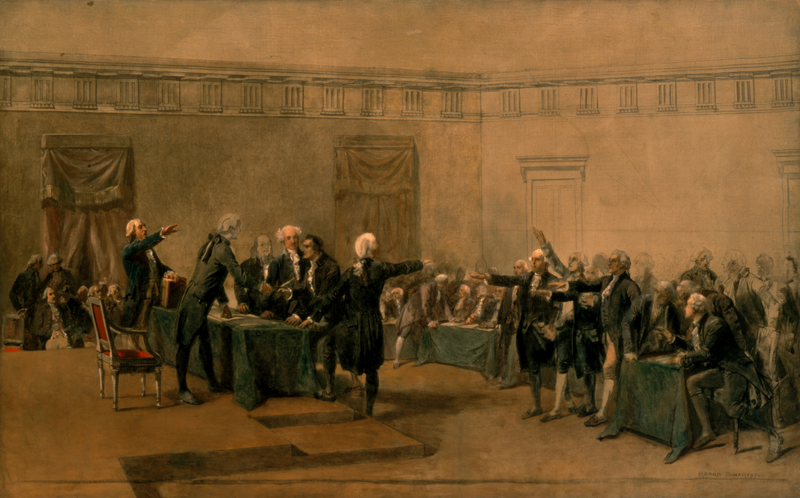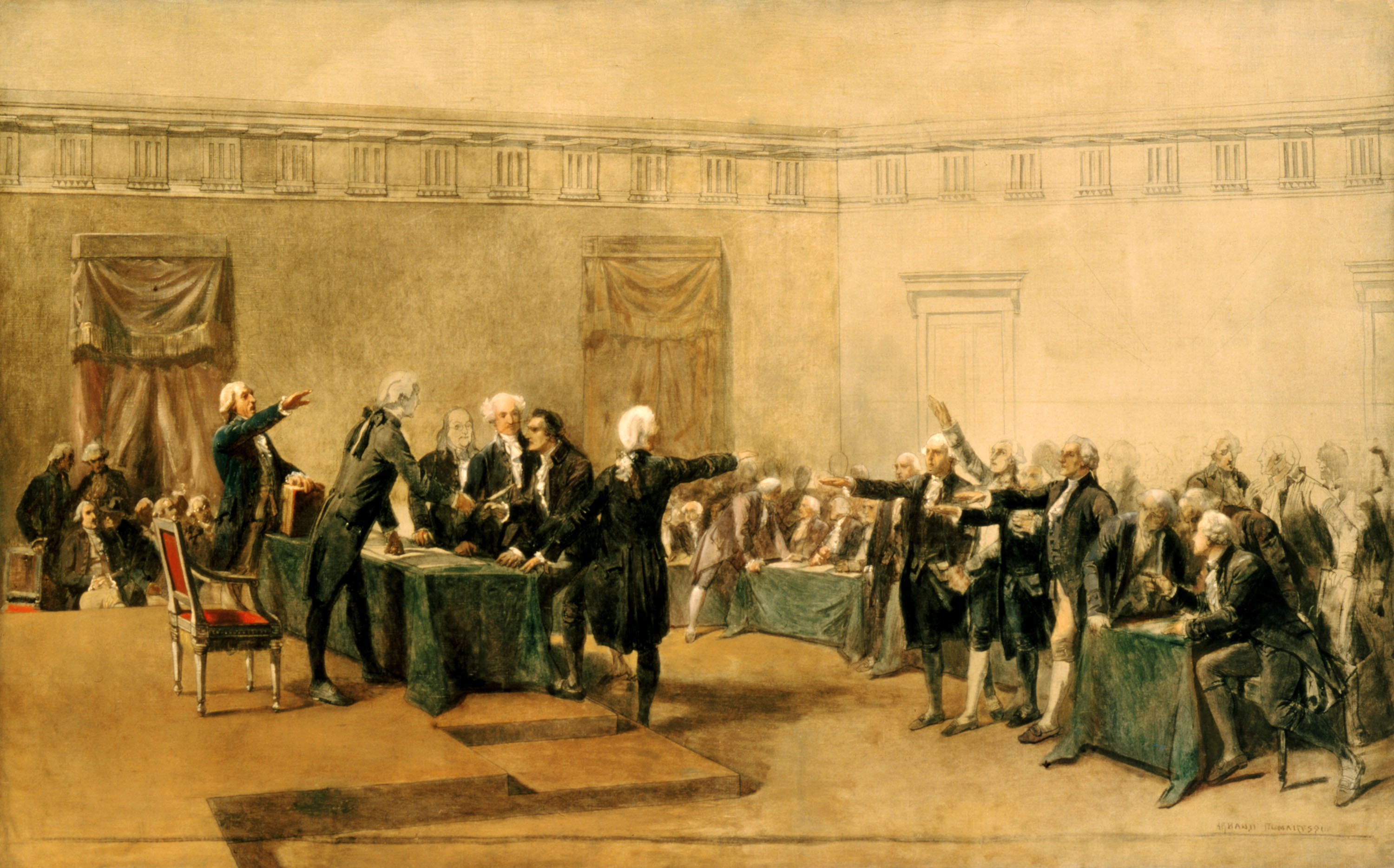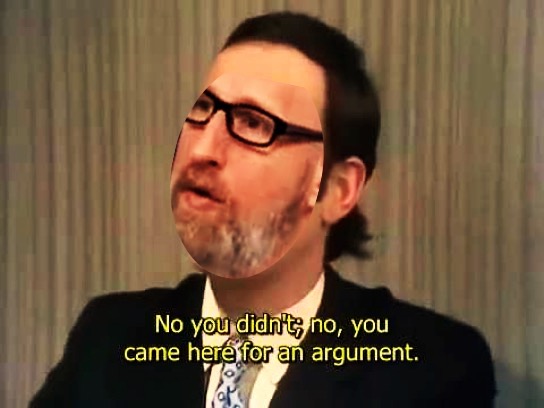Democracy and despotism in a digital age.
Identity vs. Identity Politics

The human person is irreducible.
The proponents of identity politics place individual people into groups. On the surface, there is nothing necessarily wrong with that. We all identify with some group or another, however significant or superficial it may be. I can say that I am an American citizen, who happens to be also a Bosnian woman, a war survivor, a former refugee, and a Twin Peaks fan. This means I have a lot in common with many people in these respective groups. But this kind of unity, or solidarity, is not what identity politics has in mind at all.
Identity politics as a term has existed in one form or another since the Civil Rights era, when politics became synonymous in the minds of many with overcoming oppression. But what began as a genuine effort to be free became another form of totalitarianism. Identity itself took a back seat—disregarded in order to promulgate a particular form of ideology.
At its core, identity politics is Marxist. It always deals with some kind of oppression and divides all humanity into oppressors and oppressed. But it goes further. Oppression in identity politics ideology is measured to a degree by material conditions, but at its heart it is metaphysical. The spirit of Engels, the utopian son of devout Protestants, has trumped that of the secular economist Marx. The ultimate spiritual valence in identity politics is not good versus evil but oppressors versus oppressed. In this sense, identity politics requires us to subvert our proper understanding of the fundamental order of things, including the nature of our own identity. Ultimately, identity politics tends toward the annihilation of our personal interior intellectual and spiritual life.
The Unity of Perennial Questions
The question of what it means to be human is of no concern to identitarians because the primary objective of any identity politics is not a desire to know or wonder and awe at the different aspects of being human. Instead, identitarians very carefully and deliberately deconstruct the question until there is nothing remaining.
Among their goals are creating division among people as well as within them. The simple, perennial philosophical question—what being human is all about—makes identity politics impossible whenever it is asked. Our most basic and universal self-question is a great unifier among people, because most find humanness to be a mix of the absurd and the beautiful, no matter what specific circumstances we come from.
Identity politics, however, abhors unity and the commonality of the human condition across race, culture, and religion. Identitarians instead use demographic modifiers to foster anger and general discord among people. The more they rattle, the bigger the chance of various protests and, inevitably, violence. The advocates of identity politics are not interested in the flourishing of individuals or societies, precisely because their theoretical roots lie in some form of Marxist revolution. Masquerading as a kind of emancipation, it instead fosters servitude to a never-ending story of division—of intellectual and spiritual darkness.
A Boot Stomping on a Human Face
No matter how much identity politics emphasizes specific cases of oppression and victimhood, its message ironically relies on its lack of defining principles. More often than not, identitarian theory marinates in its own juice of ideological fluidity.
The hallmark of any ideology is a striving after something indefinable, especially when it comes to the differences between good and evil. As humans, we use language to define philosophical, theological, and political concepts. If language in the public square is manipulated (as we have seen recently with a variety of gender pronouns), it becomes easier to manipulate ongoing cultural debate. Here, too, the goal of identity politics is to create as much confusion as possible, which will render any educational or unifying dialogue among human beings impossible.
Instead of the flourishing of societies and individuals, the interest is in their constant disruption, so that no true identity can be recognized. The instant there is any mention of perennial human questions (e.g., ‘who am I?,’ ‘who is God?,’ etc.), identity politics steps on the potential discussion with an iron boot.
This is why the advocates of identity politics have deep hatred for classic works of literature such as those of Plato, Homer, Shakespeare, or Goethe. These are among the many greats who have given us much to think about who we are as human beings. This is why one major objective of identity politics is to demean those Greats by attaching to them a litany of delusional pejoratives (racist, bigot, sexist, etc.—each of which is increasingly losing its true meaning).
Never Truly Defeated
Given all of this, can we really conclude that identity politics has purchase or power over humanity? Can an individual’s spirit truly be annihilated by the forceful negation of human interiority? No, it cannot, and we have seen the proof time and time again in situations far more severe—among people living under Communism, for example. I myself, having survived the war in Bosnia, have witnessed genocide. And yet I have also witnessed acts of amazing strength of spirit during and after the war.
An ideology, however brutal, cannot blow out the single candle that remains, the inner light of the human self. One of the reasons why this is true is because the self is not a mere idea or notion but a solid reality. A human being is made up of different existential aspects that cannot be haphazardly deconstructed. In man’s interiority lie his hopes, dreams, sorrows, joys, questions, answers, ways of seeking the good. All of this indicates that there is a solid identity present, and it begins with an intricate ‘I.’
In his 1993 essay “Subjectivity and the Irreducible in the Human Being,” Pope John Paul II wrote:
The experience of the human being cannot be derived by way of cosmological reduction; we must pause at the irreducible, at that which is unique and unrepeatable in each human being, by virtue of which he or she is not just a particular human being—an individual of a certain species—but a personal subject. Only then do we get a true and complete picture of the human being.
To be a “personal subject” is to not simply be a member of this group or that group.
There are certain mysteries of the human heart that will not permit themselves to be reduced in any way, even by properly philosophizing about these mysteries, let alone ideologizing and deconstructing them.
A human being is a subject precisely because he or she is not an object that can be deconstructed. A human being is composed of memories (both personal and collective), relations to family and friends, free will, and an individual search for meaning in life. He or she is not made in order to be a servant to the master that is ideology.
The Meeting of the Selves
Here, we arrive at the final assault which identity politics makes on humanity: destruction of the encounter.
By attempting to destroy individual interiority, identity politics negates the relation between one human being to another. These relations can be of many varieties: friendships, erotic, neighborly, or even our relation to the Divine. How on earth can dialogue even exist in such an environment of denial? How can listening be a part of what society is if the ears of identity politics are deaf?
On the subject of dialogue, Cardinal Joseph Ratzinger (later Pope Benedict XVI) wrote that “To listen means to know and to acknowledge another and to allow him to step into the realm of one’s own ‘I’.” Identity politics does not merely represent the reduction of the human person but also of our relation to one another. This is why the game that the advocates of such an ideology play is dangerous, not only spiritually and intellectually, but politically.
Let us not fool ourselves: although it may not be Marxist, there will always be an ideology present in our society which attempts to pit people against one another. Revolution in itself is not evil if the aim is to get rid of tyranny in favor of individual and societal flourishing. But even then, one must proceed carefully and prudently. But Marx’s doctrine has set in motion a continuous revolution, whose only aim is to arbitrarily assign the roles of victim and oppressor to groups of people.
The task before us is both simple and complex. We must continue to be the voices of reason against identity politics or any ideology that dehumanizes and exploits people. As much as times are always changing, we must also keep furnishing reminders of the deeply human, perennial questions and conditions that propel us into dialogue with one another—into the recognition of each other’s humanity.
The American Mind presents a range of perspectives. Views are writers’ own and do not necessarily represent those of The Claremont Institute.
The American Mind is a publication of the Claremont Institute, a non-profit 501(c)(3) organization, dedicated to restoring the principles of the American Founding to their rightful, preeminent authority in our national life. Interested in supporting our work? Gifts to the Claremont Institute are tax-deductible.






